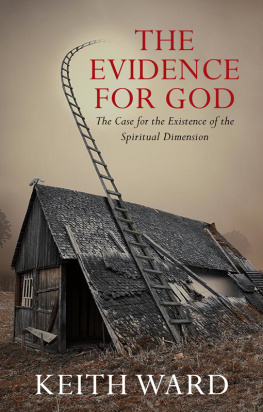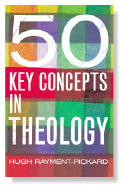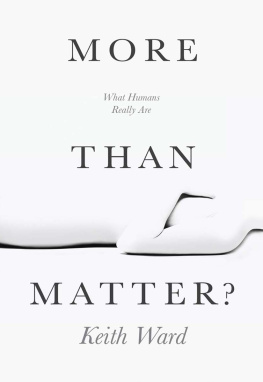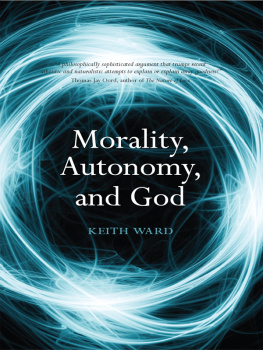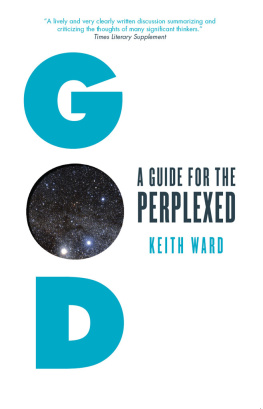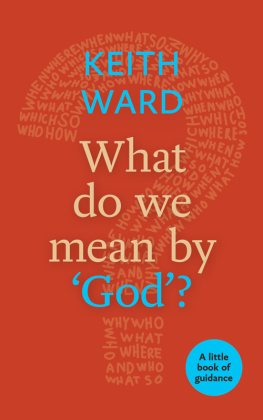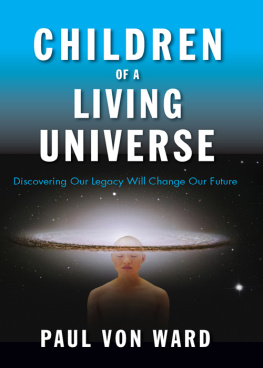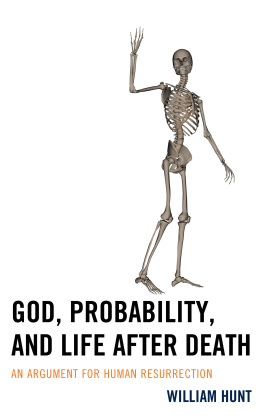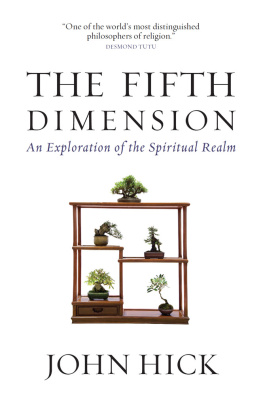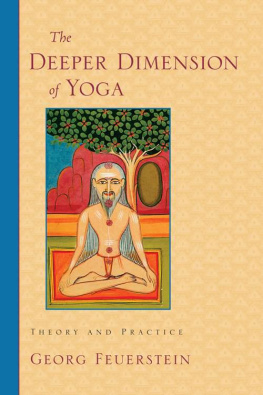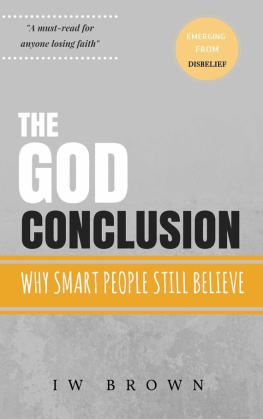

First published in 2014 by
Darton, Longman and Todd Ltd
1 Spencer Court
140 142 Wandsworth High Street
London SW18 4JJ
2014 Keith Ward
The right of Keith Ward to be identified as the Author of this work has been asserted in accordance with the Copyright, Designs and Patents Act 1988
ISBN 978-0-232-53130-5
eISBN 978-0232-53175-6
A catalogue record for this book is available from the British Library
Phototypeset by Kerrypress Ltd, Luton, Beds
Printed and bound in Great Britain by Bell & Bain, Glasgow
THE SPIRITUAL DIMENSION
Does a spiritual dimension exist?
It is remarkable how atheism is becoming fashionable in England. It has become almost compulsory to say that you do not believe in God, if you are to stay abreast of fashion. It is equally remarkable that very few people have any idea of what great spiritual teachers have said about God. Knowledge of God is confined to a few stereotypical ideas about an invisible person living just outside the universe who interferes in it from time to time, and who long ago dictated a few ethical commands to groups of nomadic peasants, commands which can now be seen to be thoroughly irrational and obsolete.
What many people in our culture seem to have lost is any sense that there is more to reality than collections of physical particles accidentally arranged in complicated patterns. I have spent a lot of my time in recent years talking to sixth formers (eighteen-year-olds in British schools) about philosophy and religion. I have found that for more than half of them, even at schools with a religious foundation, any sort of religion or spiritual practice is a closed book. They think that the whole universe is some sort of gigantic accident, that there are no objective moral values, and that belief in anything like God is a bit of comforting self-deception.
Atheism and what you might call accidentalism (that everything is an accident, or is due to pure chance) is usually just a default position. It is what is taken for granted without argument, though there is often some vague feeling that this is what scientists have proved.
When I talk to eminent scientists some of them do support this sort of position. Time and again they have said to me, There is no evidence for God. They think that God is an unnecessary addition to reality, which does not have any useful function, and can be dropped without losing anything much. They often quote Bertrand Russells remark that believing in God is like believing that there is an invisible and intangible teapot in orbit around the earth. Nobody can see it or touch it, and it does not make any difference to anything, but some people just seem to believe it is there on faith, or without any evidence. God, they think, is like that.
I should stress that it is only some scientists who say this sort of thing, but they tend to be the most publicly visible scientists (like David Attenborough and Professor Brian Cox not that they have ever discussed invisible teapots). They appear on TV and are reported widely in the press, and what they say is taken as true by many young people. The two I have mentioned have done a tremendous amount to introduce people to the wonders of nature, and I could not admire them more. Yet I think they are quite wrong when they discount spirituality. I also believe that science itself points in a very different direction. There is a huge amount of evidence for the reality of a spiritual dimension to the world, and human life is going to be very different if the idea of God (or some idea very like it, an idea of a spiritual dimension to human life) disappears. But the fact that there is a huge amount of evidence has become so little recognised that it is going to have to be argued for.
What is spirit?
First of all we need to get some idea of what I mean by a spiritual dimension, and what the great majority of philosophers in world history, both East and West, have said about it, so that we know what we are talking about. It is a rather vague phrase. It is purposely so, because I do not want to get bogged down in all sorts of arguments about the exact nature of God, or about some dogmatic belief that all people are supposed to accept. What I am talking about is the sense that the universe we live in and know a little about is more than just a collection of material particles or fields or waves (whatever exactly you prefer) with no consciousness, no objective value, no purpose, and no meaning. There is also a level of being that is deeper, that has something like purpose and value, and we humans can sometimes feel it and find in it resources of strength, hope, and inspiration. There is something like mind or consciousnessness at the heart of reality. I do not want to tie this down too much in words. As the Chinese spiritual classic the Tao Te Ching says, The Tao that can be spoken is not the eternal Tao.
We need not know too much about the inner nature of matter (and perhaps nobody does, really) in order to find our way around the material world, and use it to fulfil our material needs. In the same way, we do not need to know too much about the inner nature of spirit (something non-material, but conscious, mind-like in some way, and of greater than purely human value) in order to realise that we live in a spiritual environment as well as a material one, and that to become attuned to that environment is to unlock huge resources of power and love in our lives. In fact, despite what I have said about the default position of atheism in English, and maybe in European culture, there is also, I believe, a huge interest in spirituality, and a very widespread sense that there is an important spiritual dimension to human life. The trouble is that there is very rarely any way of holding together the fashionable intellectual atheism of the day and the deep sense of a spiritual dimension of human life.
Most philosophers and thinkers, especially in the Western traditions, have spoken about this spiritual depth as God. Others, however, especially perhaps Buddhists, regard that term as too anthropomorphic and limited (it is a personal and masculine term, after all). They use other terms, like Pure Mind, or Suchness or even the Ultimate. I will continue to use the word God it is a nice short word but I want to say very clearly that I am really talking about spiritual values, and about the sense of spirituality, which I take to be a concern with values of the mind and heart, values which really exist in reality, and which are felt to be higher than the values of any purely human mind. So I will also speak of Spirit, thinking of these values as known by some sort of non-human consciousness, and thus as existing in something more like a mind than like a stone or a tree though something very unlike any human mind.
Almost all great philosophers, theologians, and spiritual writers, agree that God is just one way, and a particularly personal way, of speaking of Spirit. God is not a male person with a beard, sitting on a throne somewhere above the sky, or perhaps just outside the universe. Still, God is personal, and I am not going to assume that there is a personal God, or that all people with a spiritual sense believe they are encountering such a personal God. Nevertheless, many of them do. In fact many religious writers sometimes called mystics (though that word can be very misleading) hardly think of God as personal or male or like human minds at all. One of the most famous definitions of God among philosophers, anyway - was given by Anselm, who was the Archbishop of Canterbury in the eleventh century. He said God is that than which nothing greater can be conceived.
Next page
